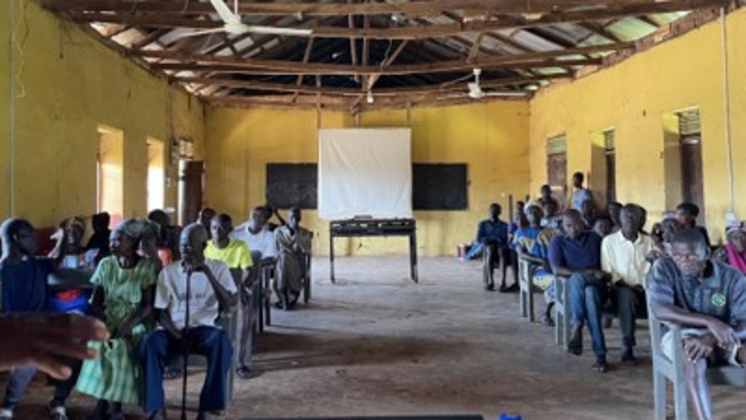Climate risk Analysis on the global porfolio: Ghana

As part of its Climate strategy, and with the support of the European Investment Bank (EIB) and the British International Investment (BII), and the expertise of Horus, Advans began to assess the climate risks on its portfolio in Ghana in September 2022. The climate risk analysis entails selecting the climate hazards that are most present in Advans countries of operations, for example floods, water stress or extreme heat (to name a few) and defining the level of exposure to these hazards in the zones where Advans clients are located. We then assessed the level of vulnerability of a client’s activity to each hazard in terms of revenue or assets.
To give an example, if a zone is heavily impacted by water stress, then this will more likely have an impact on the revenues of an agricultural activity which requires a lot of water, than on a commercial activity like selling clothes which doesn’t require any water at all. Or a flood could severely impact any business which has a lot of unprotected assets. These two scores (geographical exposure and sector vulnerability) are then combined to give an average physical risk, which is used to determine the overall vulnerability of each client. Furthermore, we are looking to understand the possible transition risks which may impact each sector in the next 15 years, such as rising costs, more strict regulatory conditions in the local or international market, and changes in demand.
The first analysis showed that flash floods were the most important risk for our clients in Ghana, with extreme heat also becoming a threat in the future in some regions of the country. Sectors like agriculture, leisure services and perishable food products are the most exposed to climate hazards. 81% of staff at Advans Ghana said they had noticed effects of climate change[1] and some clients interviewed during the study had already been severely impacted by events such as floods. Some clients had already taken measures to adapt their business infrastructure or practices, while others, especially micro entrepreneurs, remain very vulnerable to climate hazards.
Following this first analysis, Advans will look to better integrate the climate risks into its credit policies and processes, so that it can continue to support key sectors, while monitoring activities and clients that are most exposed to climate change. This will entail – in addition to the standard climate risk scoring described above – assessing clients’ individual adaptation practices, and if needed, defining how Advans can better support them to face the climate challenge through both financial and non-financial services. More specifically, Advans is aiming to build client resilience through awareness and training campaigns to help them mitigate the effects of climate risks. It will also adapt its products and services in the form of loans, savings, insurance, or a combination of all three.
The next step for the Group will be to conduct global analyses of similar customer portfolios in Tunisia and Côte d'Ivoire during 2023.
[1] Staff survey conducted with 336 respondents
Next article
